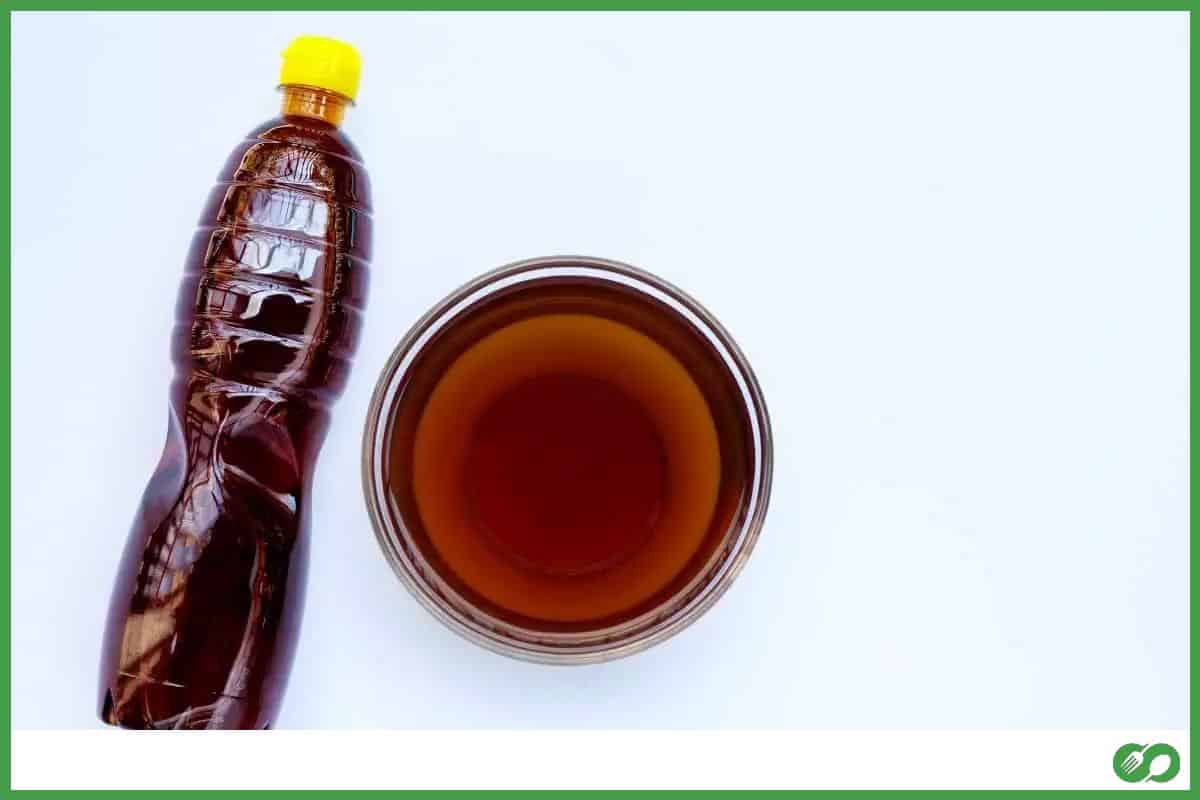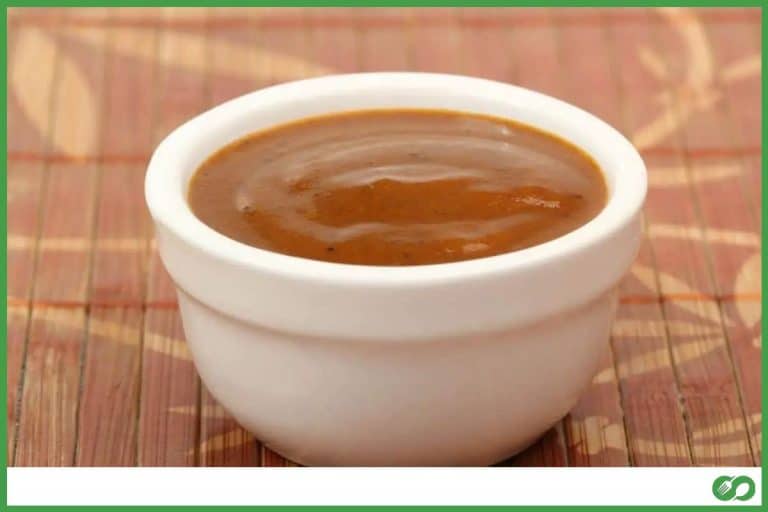Can Fish Sauce Be Stored At Room Temperature?
This post may contain affiliate links which means that, if you choose to make a purchase, I may earn a small commission at no extra cost to you.
Fish sauce is a staple ingredient in Asian cuisine. However, you might require a minimal amount of fish sauce for most recipes. Also, we don’t need it to create our daily cuisine, despite it being one of the most amazing ingredients for special feasts. So, you might be wondering: can fish sauce be stored at room temperature?
It is possible to store fish sauce at room temperature. The sauce will last for a long time in your kitchen cabinet or pantry. But the storage place must be away from direct sunlight and heat sources. However, once you open the sauce bottle, it would be best to keep it in the fridge if you plan to use it for an extended period.
The shelf life of your fish sauce depends on the quality of the sauce and the way you store it. So, in this article, I’ll discuss the proper ways to keep the fish sauce, along with some other information you might find helpful.
Is It Necessary To Refrigerate Fish Sauce?
It is not necessary to refrigerate fish sauce. The best part about fermented products such as fish sauce is that you can leave them at room temperature for an extended period. The microbes in them don’t just add flavor; they also aid in preserving it.
Fish sauce seems to have a long manufacturing and fermentation period. So, you can easily store them at room temperature. However, it might ferment further and alter the flavor a little. But it would still be edible.
The sauce’s water and salt molecules are chemically bound. It means bacteria and other hazardous microbes have almost no chance of multiplying. But it does not rule out the idea of freezing it. It’s entirely up to you whether you want to put it in the refrigerator.
How Long Does Fish Sauce Last At Room Temperature?
Once you unseal it, the fish sauce would last from 6 to 12 months at room temperature. However, if properly preserved, an unopened bottle can last around three years. However, these times are solely for freshness and optimal quality.
Fish sauce has no expiration date as far as food safety is concerned. However, almost all the fish sauce bottles will have an expiration date. The expiry date indicates how long the fish sauce will retain its flavor and freshness.
The sauce may remain for months to years after its expiration date because it has plenty of sodium and no perishable components. Due to such long-lasting characteristics, some manufacturers do not add an expiry date. It isn’t to say that the quality won’t deteriorate with time. It will lose its flavor and become milder when you store it improperly.
Fish sauce’s shelf life is mainly influenced by how manufacturers prepare it. Moreover, the way you store it will also impact the shelf life.
Furthermore, the fish sauce will lose its flavor and quality even faster when you open the bottle. If you store the opened bottle in the refrigerator, it might last up to one year. On the other hand, it will last about six months in a cabinet or cupboard.
Can Fish Sauce Go Bad?
The fish sauce might get spoiled over time. However, it takes a long period if you store it properly. When you keep it at room temperature, the fish sauce may stay perfect for more than a year. If left unopened and exposed to heat or light sources, it will rot in a few days.
Due to the high salt content, the fish sauce seems to have a long life span and rarely gets spoiled. However, the taste and flavor gradually decrease with time. Whether you should keep it refrigerated or not is dependent on the brand and how often you use that. Moreover, if you don’t seal the cap tightly, it might be spoiled sooner than its actual expiry date.
How To Know If Your Fish Sauce Has Spoiled?
You might find the appearance of transparent crystals on the bottom of the fish sauce bottle. However, that does not necessarily mean the sauce is spoiled. Those crystals are sea salt. And, their production is a normal response that does not affect the condiment’s flavor.
At times, certain particles or clouds may float in the fish sauce. These are proteins produced during the protein precipitation method. It’s a normal reaction whenever you keep the fish sauce subject to temperature variations. It’s completely innocuous and has no impact on the product’s quality or safety.
Well, fish sauce seldom spoils to the point of making you sick. The high sodium content is responsible for inhibiting bacterial development.
The hue of fish sauce is bright, brownish, and transparent when you use it for the first time. But it may become darker over time. Because the sauce has aged, you can expect a darker hue.
However, if the fish sauce produces an off-odor that is not similar to the typical odor, you must dump it. Similarly, if mold grows on the bottle’s cap or surface, you should avoid using the sauce.
So, throw aside the sauce if the surface or the bottle’s neck shows symptoms of yeast or mold. The same goes if the scent or color has altered significantly. Use the sauce to see if it’s appropriate to use based on its appearance and smell. If you are not sure if it is safe to consume, it is better to throw it away.
How To Store Fish Sauce To Extend Its Shelf Life
You must keep the fish sauce in its airtight bottle in a cold, dark location, such as the pantry. A consistent temperature away from the dishwasher or stove is also preferable. However, the salt in fish sauce might crystallize if you store it in the fridge.
It will suffice to store your fish sauce at a distance from direct sunlight and heat sources if it is in its original airtight container. Even though the label contains an expiry date, properly maintained fish sauce would last considerably longer. So, here are the proper ways to store your fish sauce to extend its shelf life:
Pantry
It’s okay to keep your fish sauce bottles in the pantry or kitchen till you’re ready to use them. Light and heat degrade the quality of this product. Hence, keeping these at room temperature and in a dark environment would be best. Furthermore, pick a good location away from the dishwasher, microwave, or stove.
You can also leave the bottle in the cupboard once you open it. But make sure to close its lid tightly after each use to avoid oxidation.
Moreover, it would be best to inspect the cap now and again and wash it if necessary. Remember, it is critical to avoid fish sauce sludge accumulation because it can lead to mold growth.
Fridge
Even though you may store a tightly sealed fish sauce bottle in the pantry, it is best to keep it in your refrigerator if you wish to keep it unused for a very long period.
As it has high salt content, this sauce might stay inside the kitchen cabinet for several weeks or up to 6 months in the pantry. However, it is preferable to maintain that at a cooler temperature to preserve its quality over time.
The sauce often loses its characteristic flavor when you store it in a warm environment for several weeks. If you use the same container for six months or more, the fridge’s temperature would be optimal for preserving its quality.
Remember that high-quality fish sauce has no preservatives. As a result, it would last less time than a lower-quality product containing these chemicals.







